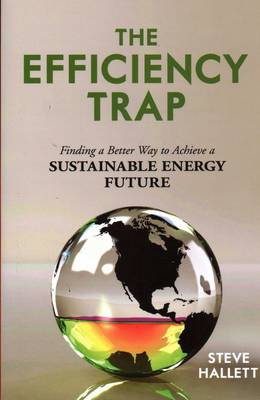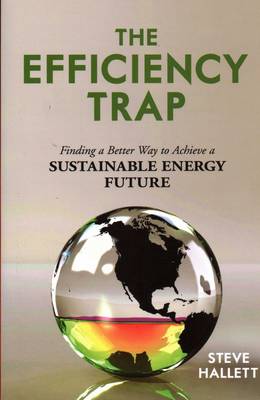
- Afhalen na 1 uur in een winkel met voorraad
- Gratis thuislevering in België vanaf € 30
- Ruim aanbod met 7 miljoen producten
- Afhalen na 1 uur in een winkel met voorraad
- Gratis thuislevering in België vanaf € 30
- Ruim aanbod met 7 miljoen producten
Zoeken
The Efficiency Trap
Finding a Better Way to Achieve a Sustainable Energy Future
Steve Hallett
Paperback | Engels
€ 29,45
+ 58 punten
Omschrijving
One of the key tenets of the environmental movement is the need for greater efficiency in our use of dwindling natural resources, especially coal, natural gas, and oil. In this surprising new look at sustainability and conservation, environmentalist Steve Hallett argues that this thinking is fundamentally flawed. In fact, based on the example of coal use throughout the Industrial Revolution, more efficiency leads to more consumption, faster depletion of resources, and ultimately more stress on the planet. This is the efficiency trap.How do we avoid this trap? Hallett suggests that we focus on protecting natural resources, ecosystems, and social systems by making them more resilient. Knowing that we have reached limits to growth, we should work to decentralize energy-delivery services to give homes and communities some measure of independence. We can also build more sustainable food systems by diversifying the food-production landscape to address the vulnerabilities of the current supply chain. Efficiency does have its place in specific areas such as recycling and home insulation, but it will not work as a long-term approach to our energy dilemma.
Specificaties
Betrokkenen
- Auteur(s):
- Uitgeverij:
Inhoud
- Aantal bladzijden:
- 338
- Taal:
- Engels
Eigenschappen
- Productcode (EAN):
- 9781616147259
- Verschijningsdatum:
- 23/04/2013
- Uitvoering:
- Paperback
- Formaat:
- Trade paperback (VS)
- Afmetingen:
- 150 mm x 226 mm
- Gewicht:
- 358 g

Alleen bij Standaard Boekhandel
+ 58 punten op je klantenkaart van Standaard Boekhandel
Beoordelingen
We publiceren alleen reviews die voldoen aan de voorwaarden voor reviews. Bekijk onze voorwaarden voor reviews.








